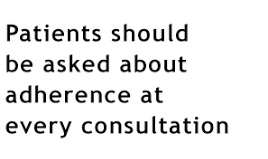Patient Medication Adherence Response to Articles Order Instructions: The writer will have to read each of these articles and react to them by commenting, analyzing and supporting with relevant articles.

The writer will have to read carefully before giving constructive comments on the article. The writer should write one paragraph of at least 150 words. APA and in-text citation must be used as each respond to the two articles must have in-text citations. The writer will have to use an article to supports his comments in each of the articles. Address the content of each article below in one paragraph each, analysis and evaluation of the topic, as well as the integration of relevant resources.
Patient Medication Adherence Response to Articles Sample Answer
Response to Articles
Article 1
Great article! Compliance with treatment and adherence to medication affects the ultimate outcome of disease management. Usually, poor treatment outcomes do not only affect patients but also the health care system including nursing practice. In most cases, poor medicine use is associated with unnecessary expenditures hence raising the cost of disease management. as Jimmy and Jose wrote, there are various ways of improving patient adherence to medications, and nurses, pharmacists, physicians, as well as other clinicians play centrally in implementing them (2011, p. 155). Enhancing patient literacy is one of such approaches. As Brown and Bussell asserted, illiteracy is a crucial patient factor that results in poor medicine use and compliance with treatment (2011, p. 304). It is also true that the proper use of medicines would rely on effective communication between health care providers and their clients. As such, nurses should ensure that their clients understand treatment instructions and directions.
Article 2
Fantastic! As an evidence-based practice nurse, one should prioritize on patient treatment and management approaches that yield the best results. One of the opportunities available in promoting desirable treatment outcomes includes facilitating the accessibility of health information to patients, enhancing the usability of such information, and prioritizing on the quality of education that patients get regarding their health (Schardt, 2011, p.1). Health literacy would be effective in helping patients to make appropriate clinical decisions. It should be noted that terminally ill patients such as those with diabetes would indispensably require information concerning their health for them to exploit measures that would promote the quality of the lives that they would lead. For this group, critical information includes that concerned with self-management, self-care, and self-efficacy (Cavanaugh, 2011, p. 191). Patient education should also include issues such as risk factors to diseases and ways of overcoming them.
Patient Medication Adherence Response to Articles References
Brown, M. T., & Bussell, J. K. (2011). Medication adherence: WHO cares? Mayo Clinic Proceedings, 86(4), 304–314.
Cavanaugh, K. L. (2011). Health literacy in diabetes care: explanation, evidence, and equipment. Diabetes Management (London, England), 1(2), 191–199.
Jimmy, B., & Jose, J. (2011). Patient medication adherence: Measures in daily practice. Oman Medical Journal, 26(3), 155–159.
Schardt, C. (2011). Health information literacy meets evidence-based practice. Journal of the Medical Library Association : JMLA, 99(1), 1–2.




